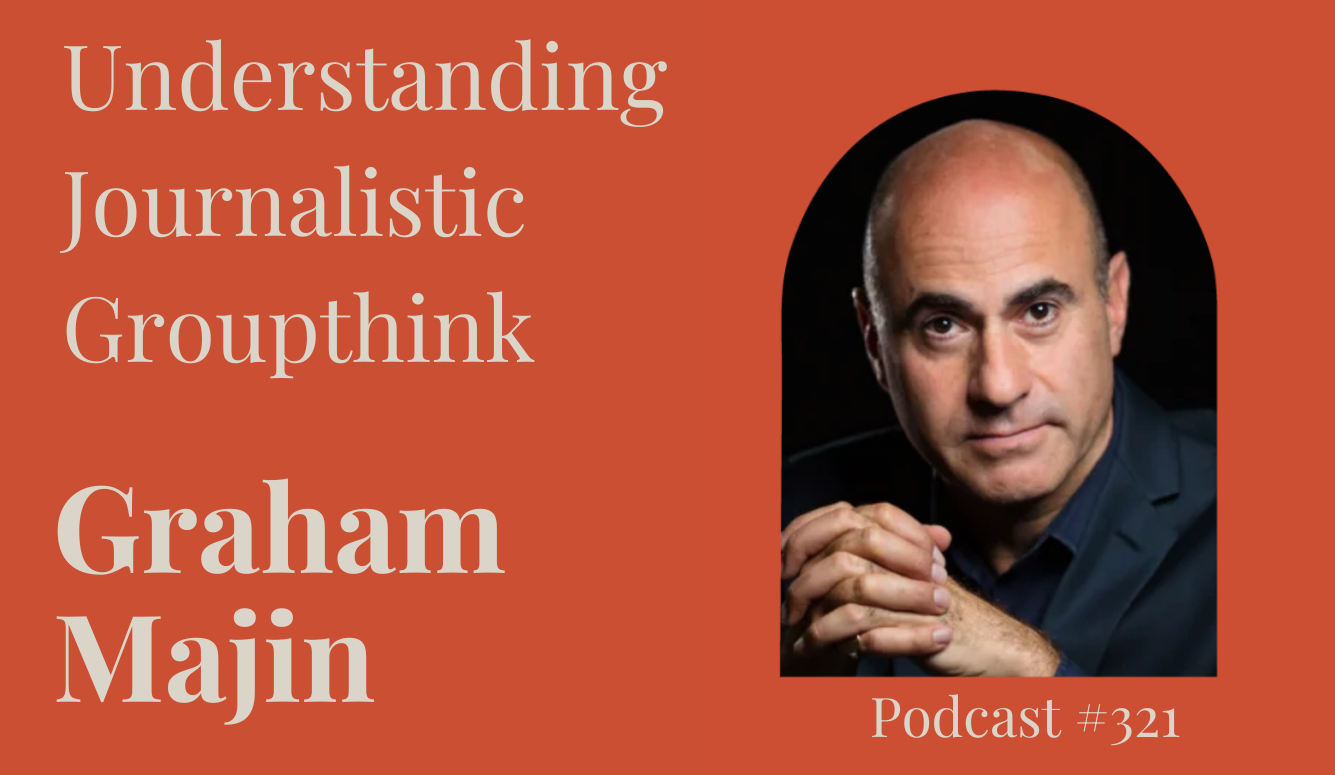Art and Culture
The Bermuda Triangle of Science
Quantitative genetic work on human behavior has also had its time in the spotlight as arguably the most controversial subject in science.

This is an essay about how to avoid carpet-bombing your career as a scientist. The academy, in general, is a wonderful place to work, but not everyone plays nice. Veer too far from carefully charted courses and someone may slip quietly up behind you and slide a cold piece of steel in between the ribs of your budding research career.
They’ll do this believing that they are serving public interest by snuffing out dangerous research agendas, but that won’t make any difference to you. It’ll be your reputation that will suffer grievous injury. What in the world might elicit such harsh rebuke from a community of otherwise broadminded, free speech spouting scholars? What is so verboten that it constitutes academia’s Bermuda Triangle, a place where careers disappear more often than ships in the actual Bermuda Triangle? In one word, it’s race.
Now, had I written this a decade or more ago, general intelligence would have topped the list of forbidden academic fruit. This is not to say that intelligence research has magically become mainstream. It still carries its fair share of controversy. On one level, the continued debate about intelligence strikes me as quite funny, honestly. If you want to watch academics glorify a trait that many still think, “doesn’t exist” or “doesn’t matter”, hang around them when student applications are being reviewed. It’s hilarious to watch folks froth at the mouth over sky-high test scores that they would otherwise tell you measure nothing at all.
Nonetheless, the evidentiary base regarding the existence of general intelligence and its ability to predict important life outcomes — including health, longevity and mortality, as well as other key variables — is beyond compelling, it’s overwhelming. And if you find yourself feeling like you can do damage to this evidence base by invoking arguments about “multiple intelligences” or something of the sort, let me save you the effort. Those urges illustrate unfamiliarity with any of the serious research done on the topic in the last several decades. If those urges haunt you, I’d recommend Stuart Ritchie’s excellent primer on the topic. The waters of intelligence research, though controversial, no longer require that you be Magellan to navigate them. As we will see below, however, it is only one small step from banal psychometric work on IQ, to the mother-load of academic controversy. Stay tuned.
Quantitative genetic work on human behavior has also had its time in the spotlight as arguably the most controversial subject in science. Like intelligence, the evidence base regarding the heritability of human outcomes is beyond reasonable dispute. However it hasn’t always been like that, as folks like Thomas Bouchard can rightly attest. Some controversy still erupts from time to time, but the general themes of these controversies often have more to do with fine-grained methodological points, and not the wholesale dismissal of the notion that human behavior is heritable. So, while not exactly free from rancor, behavior and molecular genetics represents a sea of much calmer waters than in prior years.
Evolution, as it applies to the social sciences, would have also made the list some decades back. But pioneers like E.O. Wilson, Leda Cosmides, John Tooby, David Buss, Margot Wilson, and Martin Daly (as well as a number of others) have absorbed many punches and blows for us younger generation of scholars. Their efforts produced a sizeable evidentiary base regarding the role that evolutionary processes have played (and continue to play) in sculpting human psychology. Debates still rage, and controversies still exist, but nowadays arguing that natural selection played some role in molding human psychology will no longer jeopardize your career.
There have, of course, been other controversial issues that have popped up. I might have talked about the study of sex differences for example, which has drawn the ire of critical scholars for years. Yet much of that discontent was because people were approaching the subject in an evolutionary/biologically informed framework (for more broad insight on academic controversies see Steven Pinker’s discussion in The Blank Slate).
So this brings us back to the notion that race represents academia’s true Bermuda Triangle. Perhaps never has the topic of genetic ancestry been so important, yet despite its relevance, bright scholars continue to stay away from it in droves. Who can blame them, really? As John McWhorter has pointed out, screaming “racist” at every one who dives off into this topic has become a religious rite, of sorts. It will not matter how noble you think your motives are, if you factor in race as a variable, your actions are subject to impeachment, and your reputation may be sacrificed as a burnt offering to our new religion. Let me give you an example.

Linda Gottfredson is a brilliant, productive, and innovative scholar. Dr. Gottfredson, however, found herself in the Bermuda Triangle some years back, and her story should serve as a lighthouse for those looking to avoid the same fate. In an article published in the academic journal Personality and Individual Differences a few years ago, Gottfredson described her ordeal with the University of Delaware. I would encourage you to read her paper; it’s very accessible and non-technical. In it, Gottfredson unleashes an account of gross academic freedom violations, owing to a research program tainted with the stain of connections to race. After having grant dollars denied, which resulted in an initial complaint filed against the university, four more separate cases were also filed by Gottfredson and her collaborator Jan Blits. All told, the cases levied against the university detailed instances of denied promotions, removal of a course from course listings, and an atmosphere of general harassment on the part of the chair.
As I write about Gottfredson and Blits, and again read about their ordeal, I can’t help but recall many of the more recent, yet equally obscene, violations of free speech on college campuses. I am nonetheless encouraged of late to witness what seems to be a rising tide of support for the fundamental principals that should govern academic life; classical liberalism, freedom of thought, and freedom of speech. Yet, should those voices only be selectively employed? Should they only apply to topics that are fashionably controversial? I can assure you that few rush to the defense of someone who has drifted out into the Bermuda Triangle of academia. No flare is strong enough to cut the fog, no distress beacon can be seen, and no one is likely to welcome the call for assistance that crackles in over a weak radio signal; but why not?
For starters, crossing the boundaries of the Triangle (even if only to defend a colleague) can be frightening. Angry invectives hurled in your direction will come so fast, and so fierce, it will likely leave your head spinning, as Gottfredson illustrates (p.276):
News coverage was often lurid. The UD African-American Coalition argued that my work was not just offensive, but dangerous. My ‘‘so-called research” and the social policies I ‘‘was likely to propose” were ‘‘liable to threaten the very survival of African-Americans” (Tarver, 1990, p. 6A).
Within the Bermuda Triangle, you see, it is a free for all when it comes to accusations and motive indictment. There is no suitable defense, trying to mount in fact one will only fan the flames. Consider the following:
An allegedly dishonest or malevolent scholar who appeals to the protections of free speech or academic freedom is said to be ‘‘hiding behind” them, which provokes further scorn. Every attempt at self-defense becomes another offense. Intimations of immorality, mean-spiritedness, perverse tendencies (‘‘preoccupation” with race), and the like all mobilize distaste for targeted scholars, relax scruples in dealing with them fairly, and cause associates to shun them. (p.276)
There is quite literally, nothing you can do.
Perhaps the invective aimed at scholars such as Gottfredson comes from a “good” place. Many are concerned about what research into race differences might inspire in the form of prejudice and discrimination among the populace. Techniques to preclude such dangerous knowledge from seeping out of the Ivory Tower don’t even have to take the form of a full frontal ad hominem assault (recall our earlier imagery of the knife slid silently in the back). As Gottfredson notes (p.277):
Some critics avoid making ad hominem claims by asserting that, although the researcher may not be evil, their work can be used for evil purposes. The supposed dangers of the research are seldom explained, however, but just connoted. For instance, assertions that certain conclusions about intelligence or genetic influences are ‘‘obviously” harmful or dangerous are virtually never supported by any argument or evidence. Owing to constant repetition of such claims, however, it has become intellectual reflex in most quarters to associate the word intelligence with ‘‘hereditarianism” and, next, ‘‘hereditarianism” with evil (the Nazis), and ‘‘environmentalism” with benevolence (despite its disciple Stalin’s even larger genocide). So, although my intelligence research dealt exclusively with phenotypic differences between races, I was accused of espousing unsavory genetic policies.
Gottfredson also reveals to us (p.277, below) a different piece of weaponry popular for sinking ships that have meandered into troubled waters.
Another common retort to scholars who assert a right to investigate socially sensitive issues is that ‘‘with rights come responsibilities.” That is, one retains or deserves the right to speak freely only if one speaks ‘‘responsibly.” This hedge is usually asserted by university faculty and administrators because they are professionally obliged to pledge allegiance to the general principle of academic freedom. But being responsible is as much in the eye of the beholder as being dangerous. The former is only a muted form of the latter, as its antonym (‘‘irresponsible”) illustrates. Demanding ‘‘responsible” scholarship on selected topics simultaneously invites and legitimates burdening that research, and it thereby selectively skews the menu of ideas available for public consideration.
For years during this ordeal Gottfredson and Blits were prevented (at least partially) from doing their jobs of teaching and researching freely and without restriction. The erosion of academic freedom is a topic for another day; the point now was to illustrate the perils one faces if they choose to work in this specific area. Can any good come from pursuing a research agenda like this? Is it worth it to explain to your family, or your significant other, that your career is in crisis because you decided to pursue a specific scholarly topic?
I would advise young scholars not to study race, and it’s not because the area is unimportant. Understanding genetic differences between human populations is critical. My warnings come because if you’re not careful, you may very well have your career stripped away from you. Your vessel may take on water faster that the bilge pumps of academic freedom can pump it out. The wreckage of your reputation may sink quietly to the inky, black, bottom of history.
It need not be this way, the currents could change, the storms could clear, and the legitimacy of the topic be restored. That is partly my goal in writing this essay, to plead with you to stop demonizing scholars who engage in politically controversial work, yet do so within the ethical confines of science, as Linda Gottfredson and Jan Blits did. Must we continue to embarrass our liberal, freethinking, democratic values by telling our scholars that some topics are off limits to them? For now, view this as one signal that’s managed to penetrate the fog of the Triangle, sent from someone [the author of this essay] whose ship sailed into to it a few years back.
You should steer clear, however, if you decide to cross the border regardless of my advice, just know that even the staunchest of free speech defenders (those who would otherwise advocate for your right to study whatever you want), will very likely abandon you to the depths. There is no Coast Guard coming to rescue us, we are alone, adrift in this desolate ocean of political correctness. With that in mind, I think it’s appropriate to let Linda Gottfredson have the last word, I’m quite sure she has earned it (p. 273):
“Americans have a constitutional right to speak their mind in the public sphere, and their ability to enjoy that right is similarly vulnerable to improper constraint. It is the scholar’s job, however, to think and speak freely nonetheless.”






